Search
Did you mean: Gades?
Search Results
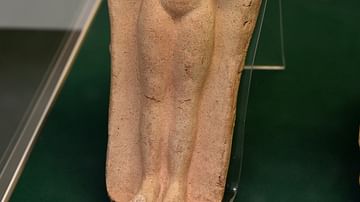
Image
Goddess Astarte Votive Plaque
This is baked clay votive plaque of a nude woman in low relief, most likely the goddess Astarte. Her Egyptian style wig was painted black. She puts her hands at her breasts. The hole at the top is for suspension. This is a development of...
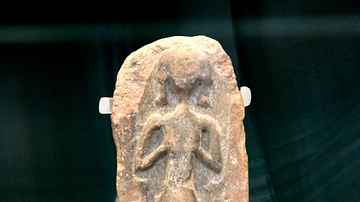
Image
Goddess Astarte Plaque
Terracotta plaque depicting the Canaanite goddess Astarte. The Late Bronze Age at Lachish. (The British Museum, London).
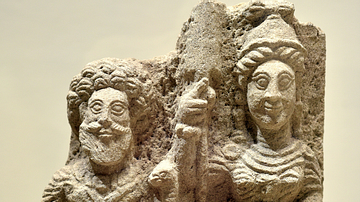
Image
Goddess Al-Lat and an Elderly God from Hatra
This limestone slab carved in relief shows two deities. On the right, the goddess Al-Lat is depicted, she wears a military dress and helmet and holds a spear in her right hand and a shield in her left arm. Her appearance is similar to Athena...

Image
Goddess Luna Pediment
Pediment from the temple of Luna, the Roman moon goddess. The temple was in use during the Roman era in Britain (1st- early 5th century CE). The carving from the pediment at Luna’s temple is still preserved and can be viewed in the Roman...
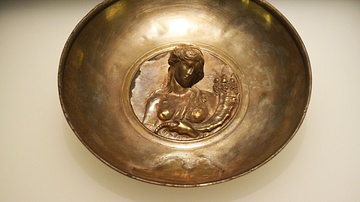
Image
Goddess Phiale from Ancient Georgia
This phiale comes from the Armaziskhevi archaeological site in Georgia and dates from the 2nd century CE. The medallion of the phiale features a goddess — Fortuna or Amalthea — with cornucopia. Separate parts of the relief are gilt. The creator...
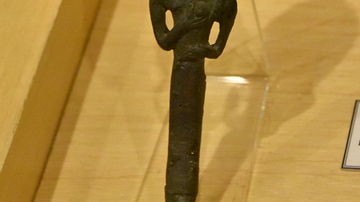
Image
Goddess from Syria
Bronze figurine of a goddess. Middle Bronze Age, 1650-1050 BCE. From modern-day Syria. (Museum of Archaeology, Istanbul, Turkey).
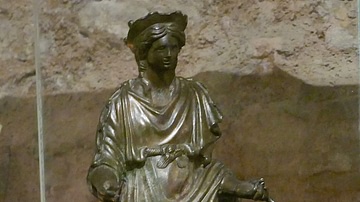
Image
Goddess Sequana Figurine
A bronze figurine of the Celtic deity Sequana, a healing goddess, regarded perhaps as the personification of the River Seine. From her sanctuary at the source of the river near Dijon. (Archaeological Museum of Dijon, France)

Video
Greek Goddess Artemis: Goddess of the Hunt and the Moon in Greek Mythology
The Greek goddess Artemis was the goddess of the hunt, wild nature and the moon in Greek mythology. She was the daughter of Leto and Zeus, and the twin sister to Apollo, the god of the sun, medicine and music among others. Artemis was a patron...

Image
Minoan Snake Goddess, Knossos.
Faience figurine of the Minoan Snake Goddess - her dominion was over nature and fertility. New-Palace period (1600 BCE). Heraklion Archaeological Museum, Crete.

Image
Sif- Norse Goddess with Golden Hair
An illustration portraying Sif, a golden-haired goddess in the Norse pantheon. She was associated with earth but was married to Thor, the god of the sky and thunder. Sif is a relatively little-known figure who appears mainly in the Poetic...